
In our busy work lives, keeping up isn't just nice—it's a must. As we approach 2025, many in Learning and Development (L&D) are asking: How will AI change corporate learning? By then, AI could add over $15 trillion to the global economy, changing many fields, including how we learn at work. And it's not just about making boring tasks easier. AI is set to create custom learning experiences, helping employees learn new skills in smarter ways. Think about AI crafting learning materials on the spot, while live data helps personalize each person's learning path. But, there's more to it. We need to handle the ethical and privacy issues that come with AI in learning. So, what does this mean for those in L&D? It means adapting and gaining new skills to make the most of AI. Let's explore how AI is shaking up corporate learning and development, and take a peek into the exciting world of AI studios like Deepbrain AI.
Summary: This article discusses the increasing role of AI in corporate learning, focusing on personalized learning, upskilling, AI content creation, and real-time analytics. It also addresses AI ethics, the learner's journey, future skills for L&D professionals, and highlights tools like Deepbrain AI and AI Studios.
The Growing Importance of AI in Corporate Learning
AI's Impact on Corporate Learning Strategies
AI has become a key player in corporate learning. It's not just a trend anymore; it's a tool that helps boost employee skills, speeds up learning, and aligns growth with company goals.
With AI, learning becomes personal. It tailors experiences to fit what each employee needs and likes. AI platforms suggest courses and tweak the difficulty based on how someone learns, making it easier to stay engaged and pick up new skills.
Think of AI-powered coaching systems as virtual mentors. They give real-time feedback and adjust to how you learn, making training at work both smarter and more personal.
Essential Skills: AI Literacy and Data Proficiency
By 2025, keeping up with tech changes means upskilling and reskilling are musts. Companies are honing in on both tech skills and soft skills like adaptability and teamwork.
- AI Literacy: Understanding AI is about using AI tools to streamline tasks and create personalized training.
-
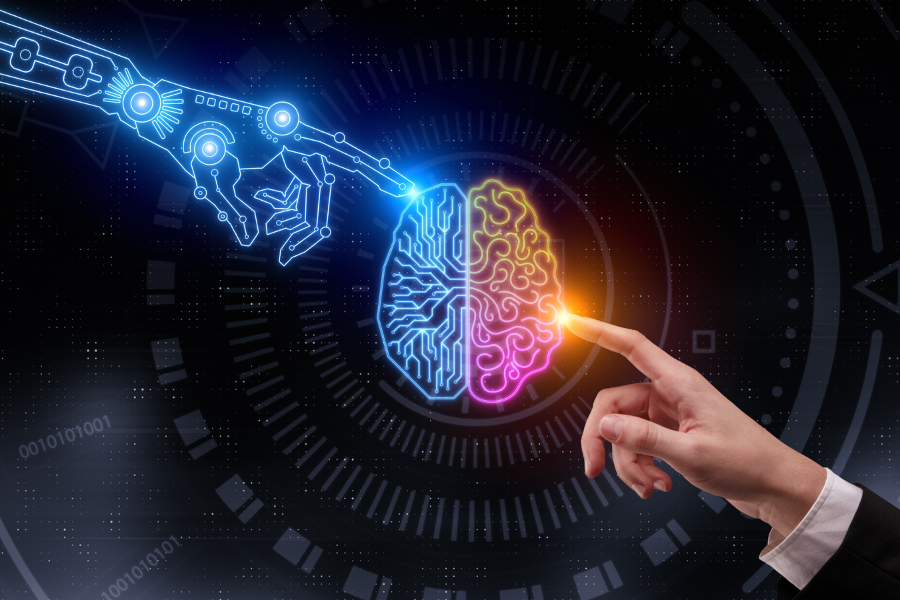
- Data Skills: Strong data and analytics skills are vital to track learning impacts and show value to stakeholders.
The focus is on continuous learning and being adaptable so employees can handle new roles and tech as they come.
Enhancing Engagement and Retention with AI
AI makes learning more engaging by offering content that fits each person. It's a smart way to keep employees around, offering relevant training that makes jobs more satisfying and cuts down on turnover.
Real-time learning analytics tie training success to business results, like how well employees perform and how the company fares overall. AI-powered virtual coaches provide on-demand, personalized help, which boosts retention and productivity.
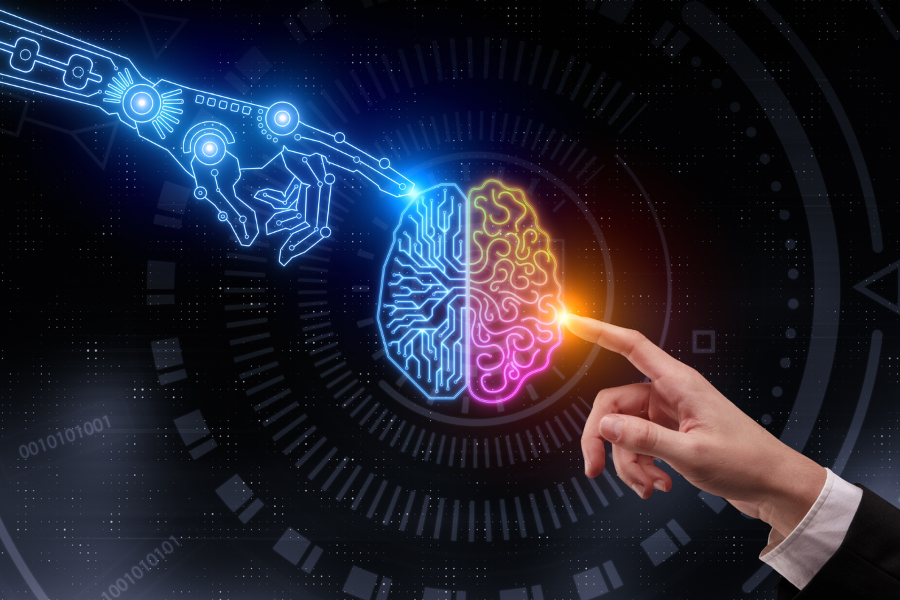
AI-driven learning programs make companies more agile, helping them stay resilient in the face of change.
Personalized and Adaptive Learning with AI in Corporate Training
AI-driven Personalized Learning Paths in Corporate Learning
AI leverages algorithms to analyze a learner's past performance, preferences, and pace, crafting a personalized learning path. This approach transcends the traditional one-size-fits-all method, offering experiences tailored to enhance learning and accommodate various learning styles. By identifying areas where a learner might struggle and providing additional resources or alternative explanations, AI-driven learning fosters better understanding and retention. For instance, if a learner faces challenges with a math concept, the AI might recommend additional practice problems and videos that align with their learning preferences.
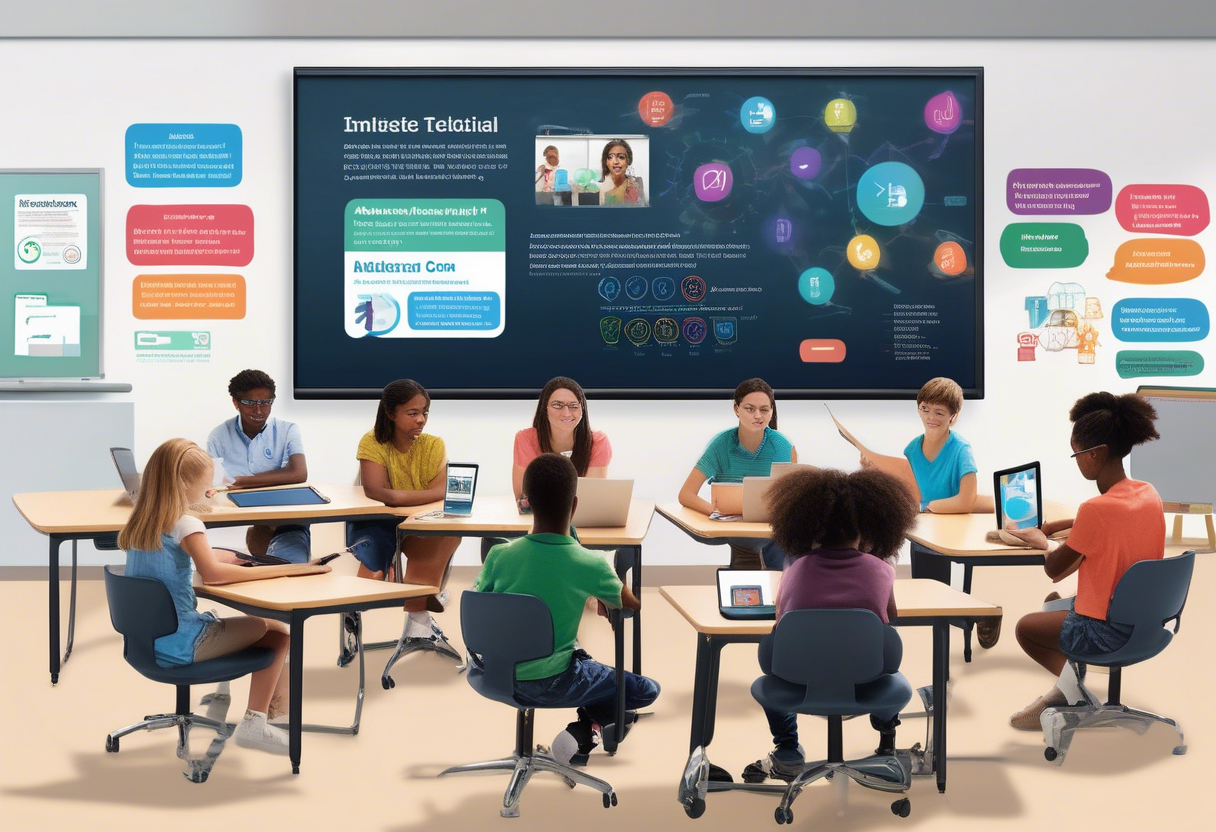
Adaptive Learning Systems and Individualized Corporate Training
Adaptive learning systems utilize AI to process vast amounts of learner data, predicting potential difficulties and adjusting the curriculum dynamically. This approach keeps learners focused on their specific needs, optimizing time and enhancing learning effectiveness. Through predictive analytics, educators can intervene before a learner falls behind. The combination of AI-driven learning with human mentorship nurtures both creativity and emotional development.
AI-generated Videos and Intelligent Tutoring in Corporate Learning
AI-generated videos employ generative AI technology to produce customized instructional content, enhancing engagement by catering to individual learner needs. Intelligent tutoring systems function like personal tutors, providing real-time feedback, adaptive assessments, and personalized hints. AI-powered homework helpers and language learning apps simplify complex problems and tailor practice sessions. These tools exemplify how AI can make corporate training more engaging and effective.
Upskilling and Reskilling with AI in Corporate Learning
Importance of AI in Upskilling and Reskilling for Job Market Evolution
The job market is constantly evolving, and AI-powered learning platforms are significantly transforming the landscape. These platforms enable employees to learn at their own pace, helping them acquire new skills necessary for personal growth and maintaining a competitive edge for companies. As digital transformation accelerates, the necessity of upskilling and reskilling becomes increasingly crucial. Companies that fail to integrate AI and machine learning into their training programs risk falling behind in innovation and revenue. AI facilitates this process by creating personalized learning paths that cater to individual skill gaps and preferences, which is essential in our rapidly changing world.
AI's Role in Identifying Skill Gaps and Optimizing Corporate Training
AI analyzes employee performance data and training records to identify skill gaps, then customizes training programs accordingly. This approach enhances the efficiency and effectiveness of learning. With AI's data-driven insights, companies can make informed decisions about employee development, concentrating on areas that require improvement and optimizing resource utilization.
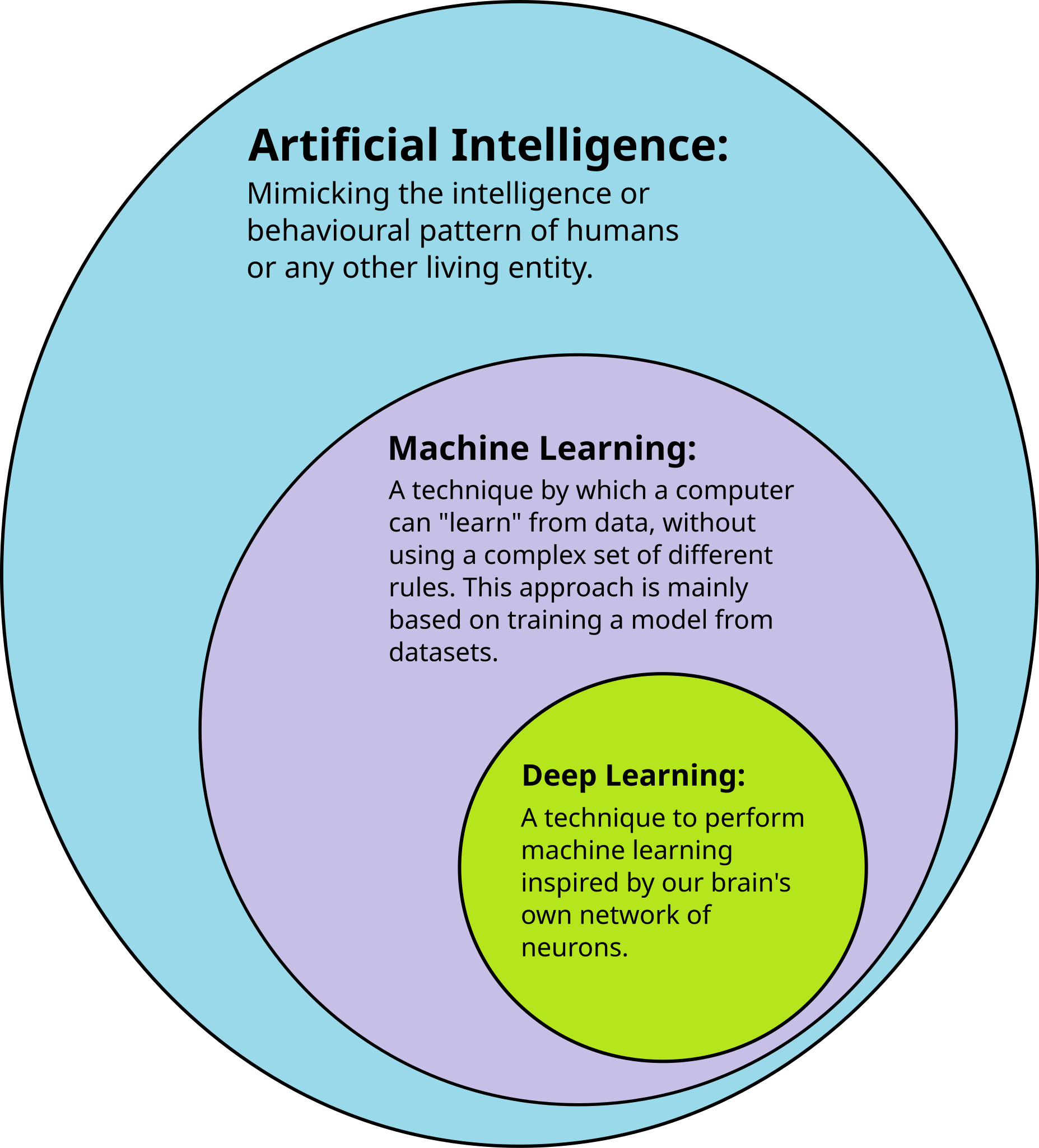
AI-powered assessments dynamically adjust content based on learner performance, providing precise skills evaluations and pinpointing training needs. By examining skills gaps and trends, AI can even forecast future training requirements, enabling companies to stay proactive in employee development.
AI Tools Enhancing Upskilling and Reskilling in Corporate Learning
AI-powered adaptive learning systems design personalized learning paths tailored to individual learning styles, increasing engagement and retention. Virtual Reality (VR) and Augmented Reality (AR) platforms, enhanced by AI, offer immersive environments for skill practice, simplifying complex topics. AI-driven chatbots and virtual assistants deliver instant support during training, maintaining learner engagement. Additionally, AI automates content creation and curation, streamlining corporate training processes.

AI-powered learning management systems provide real-time feedback, recommending personalized training materials to create an interactive and effective learning experience.
For further reading, explore these resources:
AI-Powered Content Creation and Generative AI in Corporate Learning
The Evolution of Generative AI in Corporate Learning: From Simple Tasks to Full Course Generation
Generative AI has come a long way. Initially, it tackled basic tasks such as sorting and analyzing data. Today, it has evolved to create entire course modules, quizzes, and even interactive stories tailored to each learner.
In its early days, generative AI managed repetitive tasks. Now, it quickly assembles training content from various sources, much like instructional designers do—but at a much faster pace. In corporate learning, generative AI not only creates content but also personalizes it, adapts learning paths, and provides real-time feedback, making training more engaging and effective.
For instance, a corporate L&D team can utilize generative AI to develop a complete training course, including lesson plans and quizzes, for different employee roles. This approach can reduce development time by over 60%.
Efficient AI-Driven Customized Training Content Creation
Generative AI excels at crafting customized training content. By analyzing employee data such as performance metrics, skills, and learning preferences, it builds personalized learning paths and suggests relevant content. AI-powered Learning Management Systems or Learning Experience Platforms adjust learning content dynamically based on learner performance, focusing on areas that require improvement.

While AI suggests content, human oversight remains crucial to verify accuracy and relevance. A training team might input existing manuals into a generative AI system, which then generates a customized, role-specific training program complete with assessments. This process allows courses to be launched faster with reduced manual effort.
Generative AI Use Cases in Corporate Training
Generative AI automates the creation of structured training materials like lesson plans, quizzes, and assessments, all tailored to business needs. This automation enhances scalability and personalization, enabling personalized learning on a large scale by creating adaptive learning paths and providing real-time feedback to boost engagement and results.
Additionally, generative AI helps design interactive exercises and gamified learning content akin to platforms like Duolingo, which can be adapted for corporate training. By significantly reducing content development time, generative AI allows L&D teams to maintain fresh and relevant training materials in rapidly changing business environments.
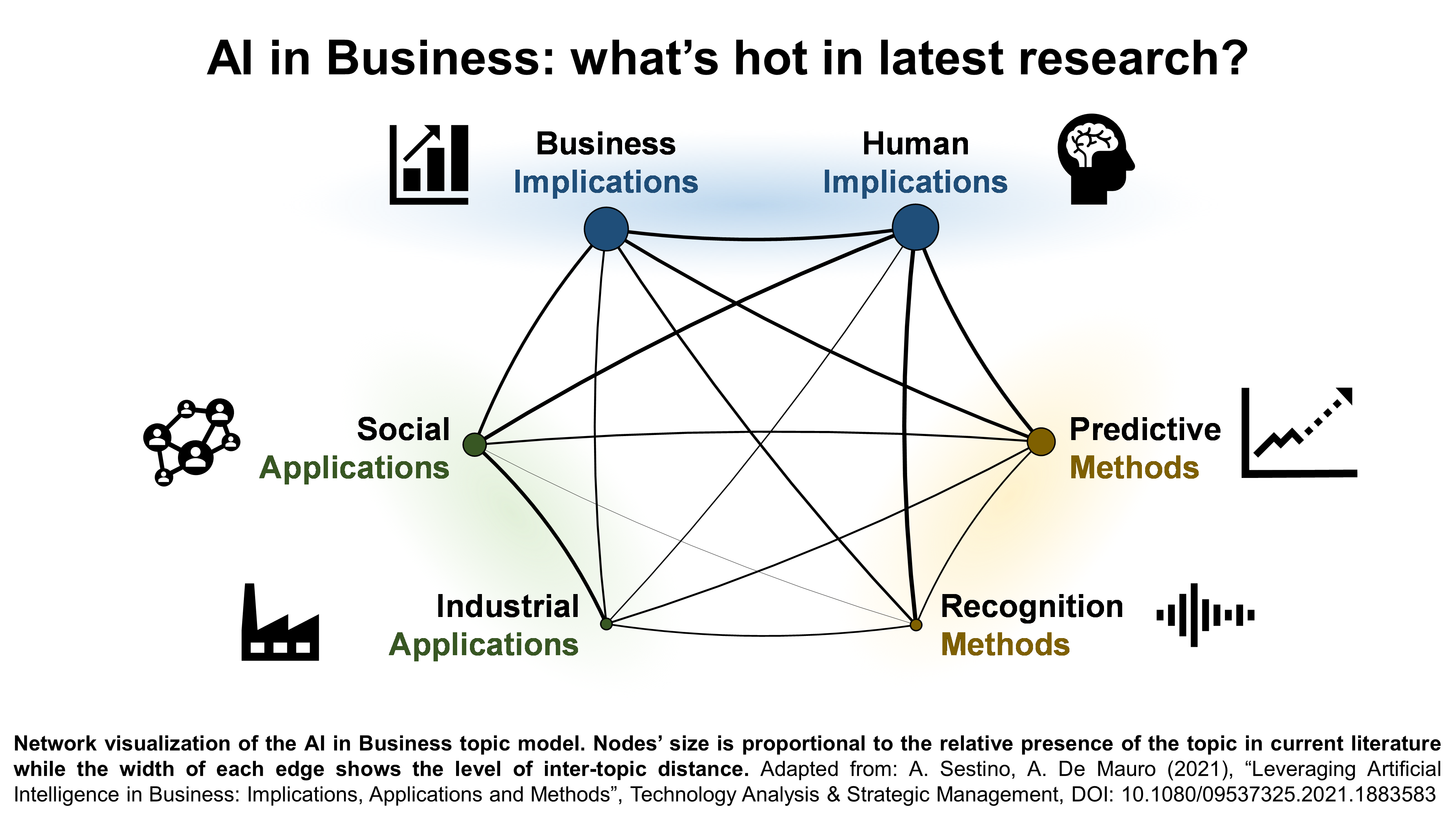
For example, a multinational company might employ generative AI to keep compliance training modules up-to-date and to create customized onboarding courses for various departments, ensuring that learning experiences remain timely and pertinent.
For more insights, explore these resources:
Real-Time Analytics and Data-Driven Insights in AI Corporate Learning
Importance of AI-Driven Analytics for Enhanced Corporate Learning
AI-driven analytics is revolutionizing corporate learning by providing real-time insights through the capture and analysis of learning data. This capability allows companies to:
- Run complex queries on large datasets quickly.
- Create personalized and adaptive learning experiences.
- Support numerous users simultaneously without performance issues.
The constant processing of data enhances decision-making speed and accuracy. For example, a global tech company monitors employee engagement and skill-building in real time to deliver customized training solutions.

Enhancing Training Effectiveness with Real-Time Data Insights
Real-time data insights function as a dynamic feedback loop for training programs. They enable organizations to:
- Adjust content and delivery methods on the fly to better meet learner needs.
- Identify learning gaps and skill shortages early for prompt resolution.
- Allow trainers and managers to delve into specific training performance areas as needed.
Streaming analytics tracks learner interactions in real time, fostering engagement and improving retention. For instance, a financial services firm utilizes real-time analytics dashboards to oversee compliance training progress, allowing swift intervention when challenges arise.
AI-Driven Decision-Making: Case Studies in Corporate Learning
Various industries are harnessing AI-driven analytics to enhance their operations:
- Financial Institutions: Use real-time analytics to detect fraud and manage risks, processing millions of transactions swiftly to identify anomalies.
- Retailers: Tailor customer learning and optimize supply chain training, thereby improving profitability.
- Manufacturing Companies: Integrate AI with IoT sensor data and real-time analytics to predict maintenance needs and enhance equipment handling training.
- Cybersecurity Firms: Depend on continuous analytics to monitor network activity and train staff in threat detection.
A multinational manufacturing company, for example, employs AI-driven analytics with IoT data to offer just-in-time training, reducing downtime and enhancing safety compliance.
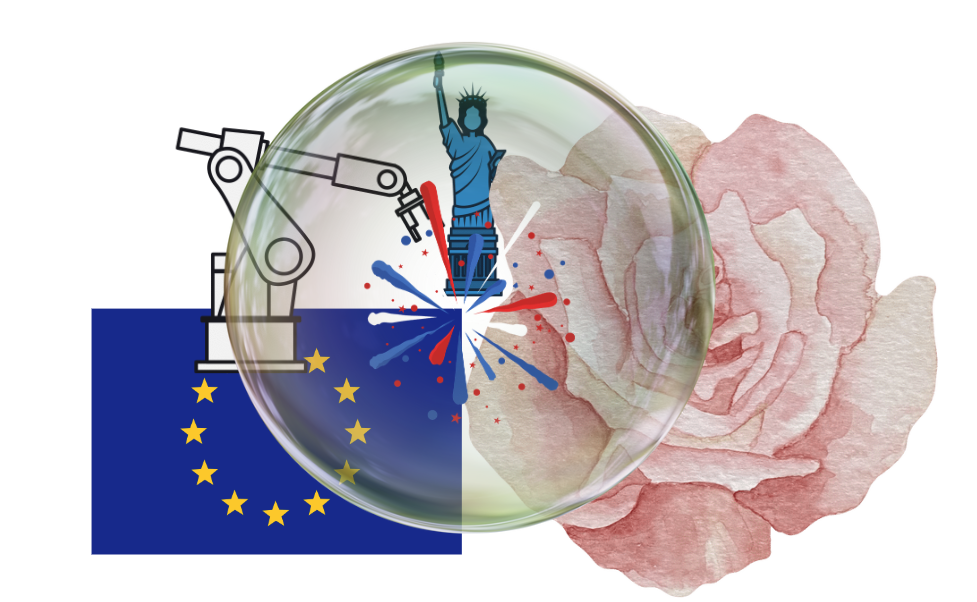
AI Ethics and Privacy in Corporate Learning
Addressing Data Privacy and Bias in AI for Corporate Learning
AI systems often encounter significant hurdles with bias, which can result in unfair outcomes for certain groups. Data privacy is also a critical concern. Organizations must collect personal data only when necessary, ensure its security, and delete it when no longer needed, adhering to regulations like the UK GDPR.

As the use of AI continues to expand, addressing issues like bias and data misuse remains a major concern (Harvard).
Implementing Ethical AI Practices in Corporate Training
Ethical AI usage demands transparency and accountability, with regular bias checks to minimize discrimination. Incorporating diverse perspectives and collaborating with various groups can help reduce AI bias.

Training leaders with real-world examples and hands-on practice enhances their ability to manage the ethical implications of AI (Harvard).
Enhancing Compliance and Transparency in AI for Learning
Establishing a robust AI ethics framework with clear guidelines is crucial for ethical AI usage (A-mplify). Transparency can be enhanced through well-defined data-sharing agreements, impact assessments, and audits (Multiverse). Implementing board oversight and educating executives about AI ethics enables organizations to better manage AI risks (Diligent).
The Learner's Journey with AI in Corporate Learning
AI-Enhanced Employee Experience: From Onboarding to Development
AI is transforming the way companies approach teaching and training. It offers personalized training that evolves with the learner, making onboarding smoother and more tailored to each individual. This technology aids instructional designers and trainers by providing insights into employee performance and identifying areas where support is needed. As a result, trainers can focus on the most critical aspects of development.
Beyond the initial onboarding phase, AI promotes continuous learning by offering instant access to resources and updates. This ensures that employees are always informed about the latest developments in their field. Additionally, AI automates routine tasks such as scheduling and evaluations, allowing trainers to concentrate on strategic planning and innovation.
Boosting Engagement and Career Growth with AI in Corporate Learning
AI tools analyze your work and learning patterns to create a path that aligns with your style and career aspirations. Incorporating technologies like AI-driven VR and AR platforms makes learning more engaging and effective. These personalized paths adapt content to match your pace and requirements, enhancing retention and preparing you for the digital future.
Step-by-Step Guide to AI-Driven Learner's Journey
- Initial Assessment: AI evaluates your skills, learning style, and career goals to establish a customized learning path.
- Personalized Learning Path: Content is adjusted in terms of difficulty, format, and speed to suit your needs.
- Interactive Learning Modules: Access resources and content precisely when needed.
- Continuous Feedback: Receive real-time tips and encouragement from AI.
- Skill Validation: AI analytics provide trainers with insights into your progress, enabling timely intervention when necessary.
By leveraging these AI-driven strategies, organizations can enhance employee experiences, drive engagement, and foster career growth effectively.
Future Roles and Skills for L&D Professionals
AI's Impact on Instructional Design and Training
AI is revolutionizing the roles of instructional designers and trainers by making learning experiences more personalized and aligned with individual employee goals and performance metrics. Here's how:
- Personalized Learning: Designers are now tasked with integrating AI insights into their courses to tailor content to each learner's unique needs.
- Automated Content Creation: Trainers leverage AI tools to automate content delivery and develop engaging, game-like training sessions.
- Role Shift: The focus is moving from merely delivering content to crafting flexible learning paths that seamlessly integrate into everyday workflows.
- Real-Time Analytics: AI-driven analytics enable real-time measurement of learning success, allowing for timely adjustments to align with business objectives.

Essential Skills for L&D in an AI-Driven World
To thrive in an AI-driven environment, L&D professionals must acquire new skills:
- AI Tools and Data Analytics: Comfort with AI tools and data analytics is essential for designing and evaluating personalized learning experiences.
- Agile Learning Design: Proficiency in agile methodologies enhances the ability to adapt learning designs swiftly.
- Emotional Intelligence and Cross-Cultural Communication: These skills are crucial for creating inclusive and effective learning environments.
- Collaboration with Influencers: Partnering with influencers and content creators is becoming increasingly valuable for developing dynamic learning content.
- Adaptability and Continuous Learning: A mindset geared towards continuous learning is key to navigating rapid technological advancements.
Preparing for Evolving L&D Roles and Responsibilities
The scope of L&D roles is expanding beyond traditional training to encompass strategic upskilling and reskilling aligned with business objectives. Key strategies include:
- Cross-Department Collaboration: Working across departments to enhance organizational agility.
- Integrated Learning: Emphasizing learning as an integral part of the workday to provide just-in-time learning opportunities with minimal disruption.
- Data-Driven Approaches: Utilizing data-driven strategies to demonstrate the ROI of learning programs and inform strategic adjustments.
AI in corporate learning is reshaping the landscape by enabling personalized learning paths, automating routine tasks, and fostering a culture of continuous learning. Organizations are increasingly collaborating with influencers and creators to engage younger employees through peer learning and mentoring. Additionally, AI platforms are incorporating gamification and virtual reality to enhance engagement and skill development.
Deepbrain AI and AI Studios in Corporate Learning
Overview of Deepbrain AI and AI Studios for Corporate Learning
DeepBrain AI offers an innovative video generation platform that transforms text into videos featuring lifelike AI avatars. It's an excellent tool for rapid content creation. Their AI Human solution boasts features like face swapping and chatbot integration, supporting over 200 languages. This versatility makes it particularly useful in sectors such as education and finance.
By leveraging ElevenLabs technology, DeepBrain AI combines realistic avatars with high-quality voice synthesis, providing natural, multilingual voiceovers. A standout product, AI Studios, allows users to create avatars from short videos with expressive voiceovers, making it ideal for producing videos at scale. The company's technical prowess is evident in its 148 AI patents and CES Innovation Awards, positioning it among the Global Top 250 Generative AI Enterprises.
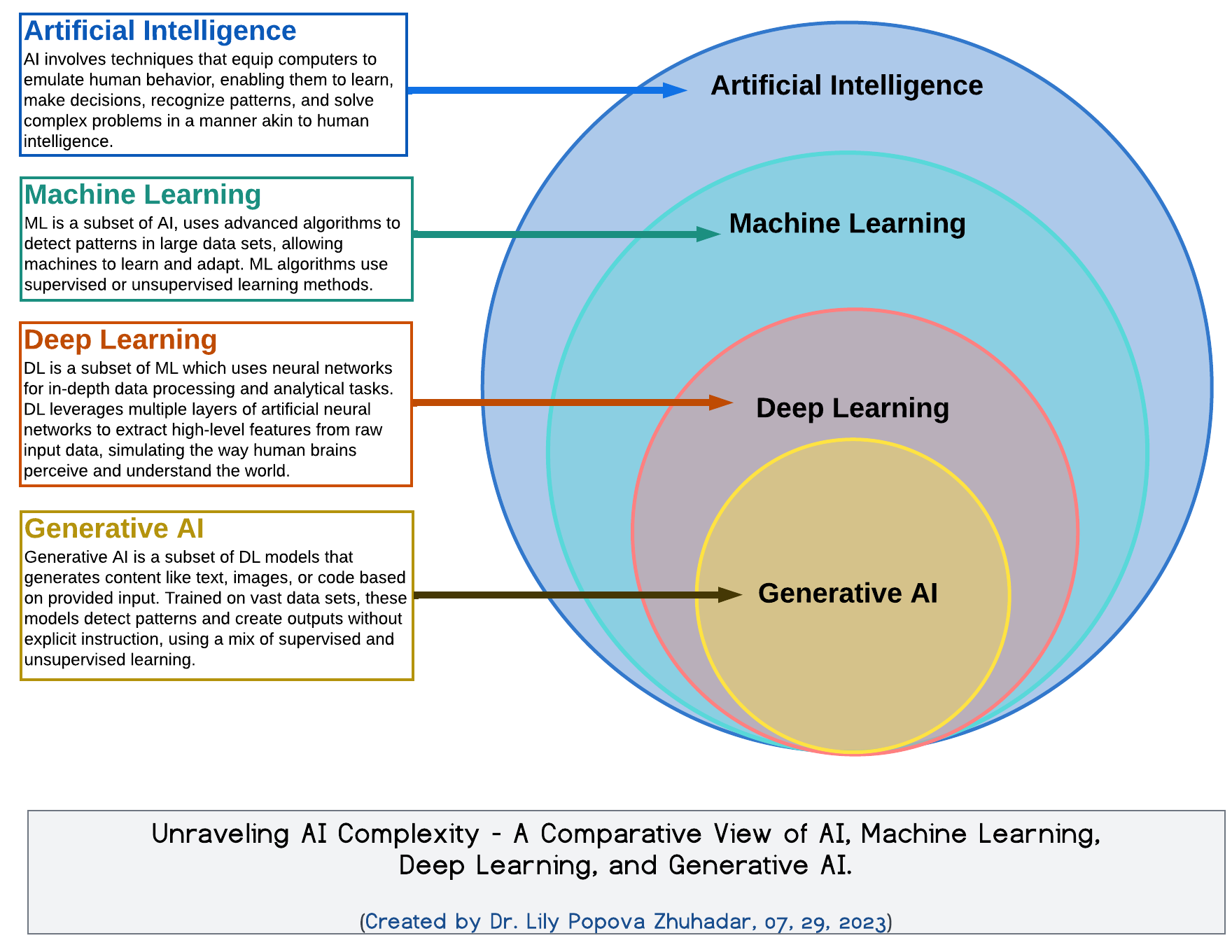
Integrating Deepbrain AI Solutions into Corporate Training Programs
DeepBrain AI is utilized by companies to generate AI-based training videos, significantly reducing the need for repetitive filming and offering personalized learning experiences. AI avatars facilitate onboarding by providing guided tours and explaining company policies. When integrated with chatbot builders like Google Dialogflow, they create interactive content that adapts to learner input. The fusion of realistic avatars and natural voice synthesis enables scalable internal communication and training video production.
Advantages of Deepbrain AI for Customized Learning in Corporations
DeepBrain AI enhances personalized learning by creating AI tutors that tailor content to individual needs. The lifelike avatars increase engagement through human-like interactions. Features like multilingual dubbing and voice cloning make training content adaptable for diverse audiences, expanding global reach. AI-generated videos reduce training costs and time, allowing for rapid updates. When combined with chatbot builders, they facilitate adaptive learning, responding in real-time to learner questions and progress.
FAQ Section
How Does AI-Driven Personalized Learning Enhance Employee Engagement?
Impact of Personalized AI Learning on Motivation and Retention
AI-driven learning systems are transforming employee engagement by tailoring learning paths to fit individual styles, preferences, and career goals. By analyzing performance data and engagement patterns, these systems craft personalized educational experiences that maintain high motivation and enhance knowledge retention.
Employees receive content aligned with both personal and company goals, sustaining their motivation throughout their learning journey. Additionally, AI-powered virtual reality (VR) and augmented reality (AR) platforms offer immersive environments for practicing skills, simplifying complex topics and making learning more engaging.

One company implementing AI-driven personalized learning paths experienced a significant rise in employee engagement and accelerated skill development, preparing their workforce for digital transformation.
What Are the Key Benefits of AI in Corporate Training by 2025?
Major Advantages of AI in Corporate Learning
AI in corporate training offers numerous benefits, which are expected to expand by 2025. AI enhances understanding of customer needs by analyzing real-time data, enabling employees to deliver superior customer service and advance in their roles.
- Boosts Engagement and Productivity: AI handles routine tasks, freeing employees to concentrate on critical work and personal growth.
- Flexible Learning: AI platforms provide 24/7 access to diverse training resources, allowing employees to learn at their own pace.
- Data-Driven Decisions: By analyzing training records, AI creates targeted programs addressing specific employee needs.
- Cost-Effective and Scalable: AI training tools reduce time and expenses compared to traditional methods, making quality training accessible for small and medium businesses.

How Does AI Facilitate Effective Upskilling and Reskilling?
AI's Role in Identifying and Addressing Skill Gaps
AI significantly contributes to identifying and addressing skill gaps by examining learner data, such as performance history, preferences, and current skills. This facilitates the creation of personalized learning paths, enhancing learning efficiency.
- Adaptive Assessments: AI-powered assessments adjust question difficulty based on learner performance, providing accurate evaluations to better address skill gaps.
- Intelligent Tutoring Systems: These systems function like human tutors, offering personalized guidance and feedback to support learners.
- Enhanced Simulations: AI improves VR and AR simulations, creating immersive spaces for employees to safely practice and apply new skills.
- Instant Support: AI chatbots and virtual assistants deliver immediate help and guidance, fostering continuous learning during upskilling and reskilling.
AI-driven content creation and curation simplify the development of training materials and recommend content that aligns with learners' interests and goals. In the finance sector, AI-based training in risk management and analytics has resulted in smarter decisions, reduced financial losses, and a workforce better prepared for challenges.
For further reading, explore these resources: